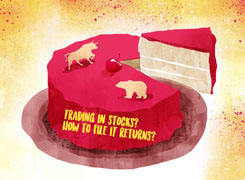Dear Dev, Is Motilal Oswal S and P 500 Index Fund is good for investment in global equity? If not, can you please suggest a good MF scheme to get global exposure in my portfolio?
Ans: Dear Dev,
Investing in global equity can add diversity and growth potential to your portfolio. However, choosing the right fund is crucial. Let's explore whether the Motilal Oswal S&P 500 Index Fund is a good choice for your global equity investment and what alternatives might be more suitable.
Understanding the S&P 500 Index Fund
Passive Management: The Motilal Oswal S&P 500 Index Fund is a passively managed fund. It tracks the S&P 500 index, which includes 500 large companies listed in the U.S.
Market Dependency: Since it's an index fund, it mirrors the market performance. If the U.S. market faces a downturn, your investment will be affected without any active intervention.
Limited Flexibility: This fund lacks the flexibility to adjust to changing market conditions. A passive approach can limit the potential for higher returns compared to actively managed funds.
Currency Risk: Investing in a U.S.-focused index fund exposes you to currency risk. Fluctuations in the INR-USD exchange rate can impact your returns.
Given these factors, while the S&P 500 Index Fund offers exposure to U.S. equities, it may not be the best choice for optimal global equity exposure.
Disadvantages of Index Funds
No Active Management: Index funds are not actively managed. This means there's no fund manager making decisions based on market trends or company performance. It simply follows the index.
Underperformance in Bear Markets: In a bear market, index funds often suffer because they mirror the market without any strategies to mitigate losses.
Limited Growth Potential: Since index funds only aim to replicate the market, they may miss out on opportunities to outperform it. Actively managed funds can provide better growth potential through strategic stock selection.
Benefits of Actively Managed Funds
Expert Management: Actively managed funds are handled by professional fund managers. They have the expertise to pick stocks that can outperform the market.
Flexibility: These funds can adjust their portfolios based on market conditions, sectors, or geographies. This flexibility can lead to better returns and lower risk.
Diversification: Actively managed global funds often invest in a variety of markets, including emerging markets. This diversification can spread risk and tap into different growth opportunities.
Global Exposure Through Actively Managed Funds
Broader Market Coverage: Consider actively managed global equity funds that invest in multiple regions. This reduces the reliance on any single market, like the U.S., and offers broader exposure.
Sectoral Diversification: Actively managed global funds often invest in diverse sectors. This diversification reduces sector-specific risks and captures growth from various industries.
Geographical Diversification: A good global equity fund should have a diversified portfolio across multiple countries. This reduces the risk associated with a single country's economic downturn.
Importance of Regular Funds Over Direct Funds
Certified Financial Planner’s Guidance: Investing through regular funds with a CFP provides expert guidance. This ensures your investments are aligned with your goals and risk tolerance.
Comprehensive Financial Planning: A CFP can help with 360-degree financial planning, covering everything from tax planning to retirement. This holistic approach ensures that your global investments fit well into your overall financial strategy.
Regular Monitoring and Rebalancing: A CFP will monitor and rebalance your portfolio regularly. This helps optimize returns and manage risks, something direct funds lack.
A 360-Degree Approach to Global Investing
To truly benefit from global exposure, consider the following aspects:
Risk Management: Diversify across regions, sectors, and asset classes to manage risk effectively. A CFP can help design a portfolio that balances risk and reward.
Tax Efficiency: Understand the tax implications of global investments. International funds may have different tax treatments, and a CFP can guide you on the most tax-efficient options.
Currency Considerations: Currency fluctuations can impact your returns. A diversified global portfolio can help mitigate currency risks.
Long-Term Perspective: Global investments should be viewed with a long-term perspective. Short-term market movements are less relevant when you're focused on long-term growth.
Regular Reviews: Regularly review your global equity portfolio with a CFP. This ensures that it remains aligned with your goals, risk tolerance, and market conditions.
Final Insights
While the Motilal Oswal S&P 500 Index Fund offers exposure to U.S. equities, it may not be the best option for global equity investment. Actively managed global equity funds, with their expert management, flexibility, and diversification, can provide better returns and reduce risks. Working with a certified financial planner ensures that your global investments are well-integrated into your overall financial plan, offering a 360-degree approach to wealth management.
Best Regards,
K. Ramalingam, MBA, CFP,
Chief Financial Planner,
www.holisticinvestment.in





















